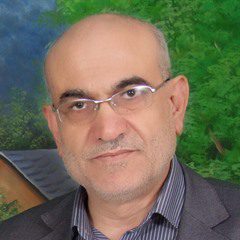Al-Nahda Party is struggling to make sure that what happened to the Muslim Brotherhood in Egypt does not happen in Tunisia. More importantly, the party is working towards sparing the Tunisians the fate of the Egyptian revolution. It would seem as though the situation of the revolution in Tunisia is very different to its counterpart in Egypt, especially when one omits the various justifications put forth by the opposition movement. Yet, the motives of the Tunisian opposition, in all that it instigates, as well as the actions of its supporters, seem almost identical to the situation in Egypt.
The Salvation Front in Tunisia was modelled upon the equivalent party in Egypt (FIS). Similarly, a Tunisian branch of the Tamarrod Party was based on the Egyptian movement, whose formation has since been exposed as being the work of state security service. The source of the party’s funding has also been exposed and is credited to Coptic billionaire Naguib Sawiris in addition to several Arab Gulf countries. Nevertheless, the pretexts that were used to justify the actions of the coup leadership (some of which are true but most are fabricated) do not seem to be applicable in Tunisia’s case. Al-Nahda, for example, which won the election after the Tunisian revolution, has not sought any political monopoly. In fact, the party has advocated and worked towards political partnership with both an open mind and welcoming heart. It made many concessions in order to ensure the success of the Tunisian revolution by leading a truly pluralistic and civil state, which leaves no room for suppression or marginalisation.
Whilst among those participating in the government are two leftists parties, other leftist parties as well as liberal parties have united against the governing troika. However, these are not the ones controlling the situation but rather the remnants of the old regime, as represented by the “Call of Tunisia” Party, for without the latter, the opposition is worth very little.” A similar scenario happened in Egypt where the opposition on its own had failed to mobilise even ten thousand people on the streets, until they were joined by old regime remnants and proponents of sectarianism. Supporters of sectarianism later joined them in an attempt to market a justification for the coup that would occur on June 30. This gathering was presented as a justification for the coup, resorting to the use of a professional producer to make it appear larger than it was in reality!
In Tunisia, there is an attempt to recreate the events in Egypt by instigating chaos and murder. It seems that it is the work of salafist group infiltrated by external powers, most prominently the killing of opposition politicians Belaid and Brahmi.
Several military and security officials have also been killed in separate incidents. Even so, these groups’ ability to mobilise crowds on the streets remains limited whereas crowds supporting Al-Nahda have always been much larger. I have said before that there is no doubt that some of the motives that existed in Egypt do exist here. By this I mean that there are forces that wish to undermine the election results by generating chaos. The forces behind the military coup in Egypt are also present in Tunisia. They support the same outcome by pumping funds and intelligence into similar operations.
If Morsi and the Muslim Brotherhood were rejected by the military and the security sector (the media and the judiciary are extensions of these two institutions) and it was these two institutions that are responsible for the demonisation of Morsi and the Brotherhood and the subsequent coup, then one can say that they are still working outside of the framework of Tunisia’s post-revolutionary government. This complicates the situation even further, especially because many of the liberal and leftist groups see no shame in forming an alliance with these institutions in the event of a coup against the elected government. In fact, it would not be surprising if some of them were plotting a coup, as was the case in Egypt.
It is hard to determine the outcome of this game. Groups that are leading the dialogue (primarily the labour movement and other organisations) are not neutral. They are biased towards the opposition and they are also exposed to temptations from outside forces. Eventually, any concessions made by Al-Nahda will not be enough for those who are controlling the game. Instead they wish to achieve a coup which does not look like a coup, in order to avoid the predicament currently facing the regime in Egypt. It is also possible that many European powers fear that chaos in Tunisia will lead many people to migrate to Europe.
A dialogue that has faltered at the beginning has now started. Some wish this dialogue to fail as long as it does not bring about their own desired outcome, which is to marginalise the members of Al-Nahda Party or send them back to prison; many hold the view that they were not worthy of government in the first place.
In contrast, Al-Nahda does not oppose any outcome as long as it leads to free elections, in which they are set to receive a third. The movement is doing everything in its power to uphold the values and goals of the revolution while other groups seek to delegitimise the revolution because of their resentment and ideological beliefs. Therein lies the difference between those who favour electoral will and those who favour selfish ambitions over the national interest and the people of Tunisia.
The views expressed in this article belong to the author and do not necessarily reflect the editorial policy of Middle East Monitor.








